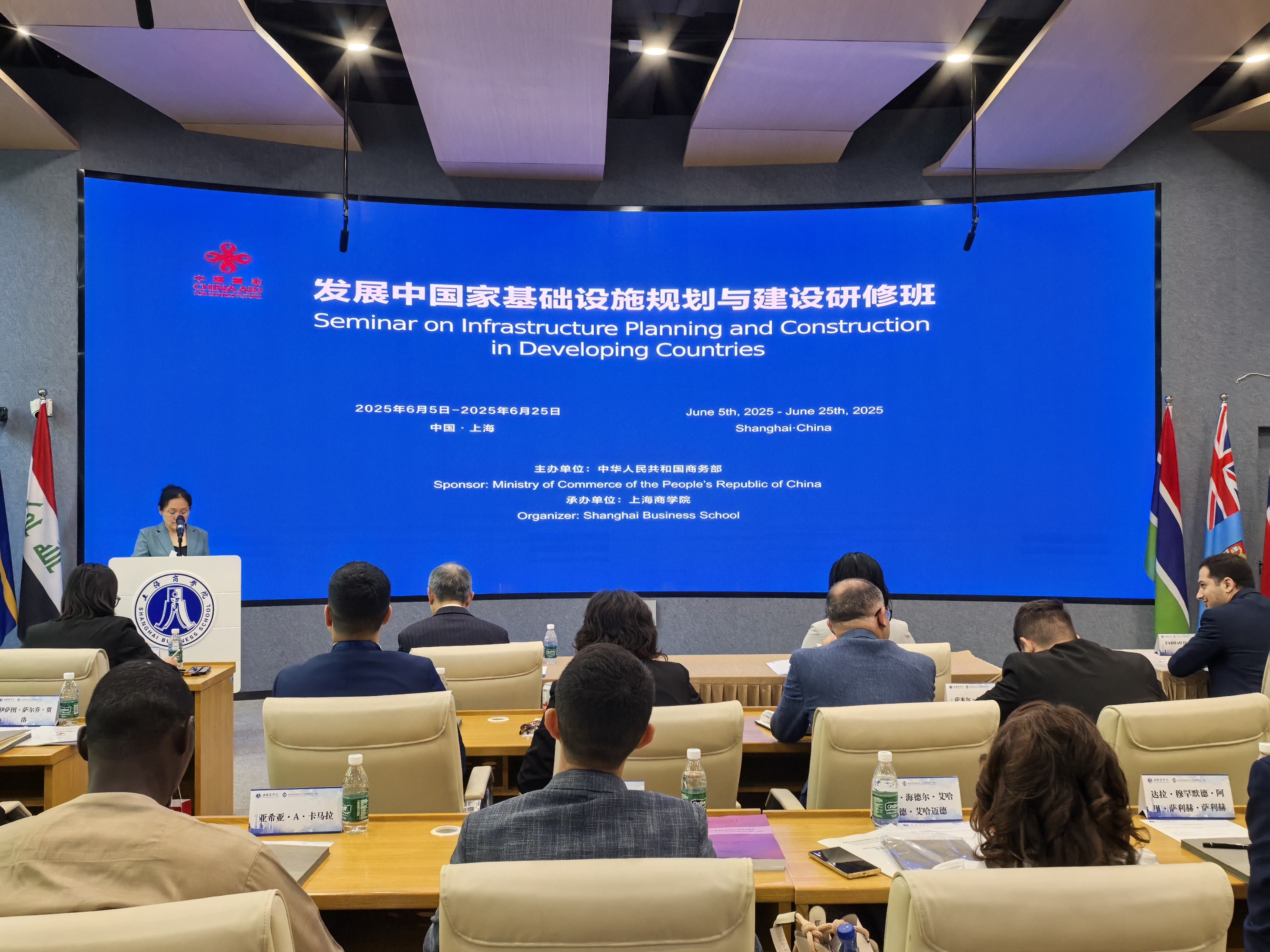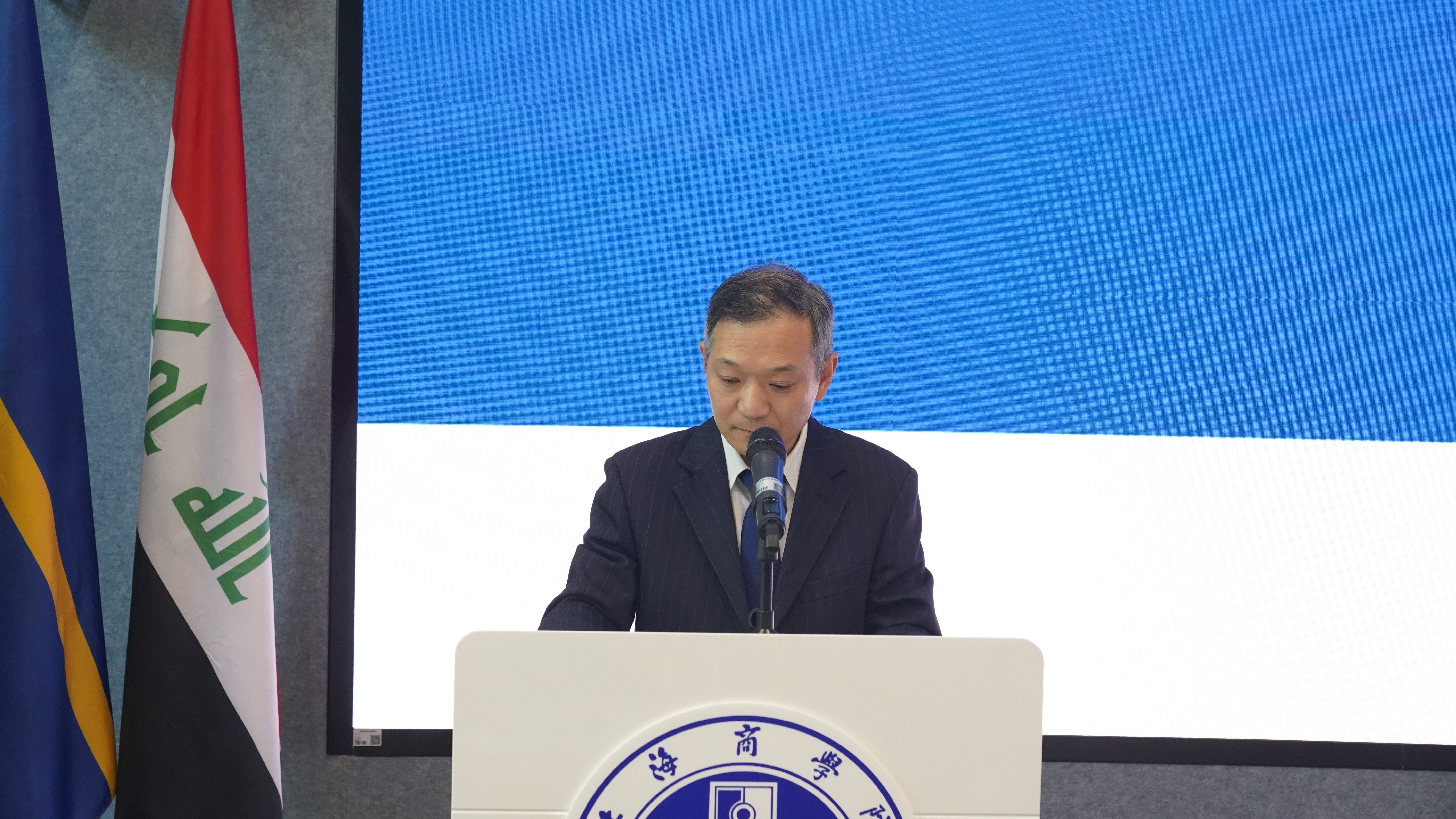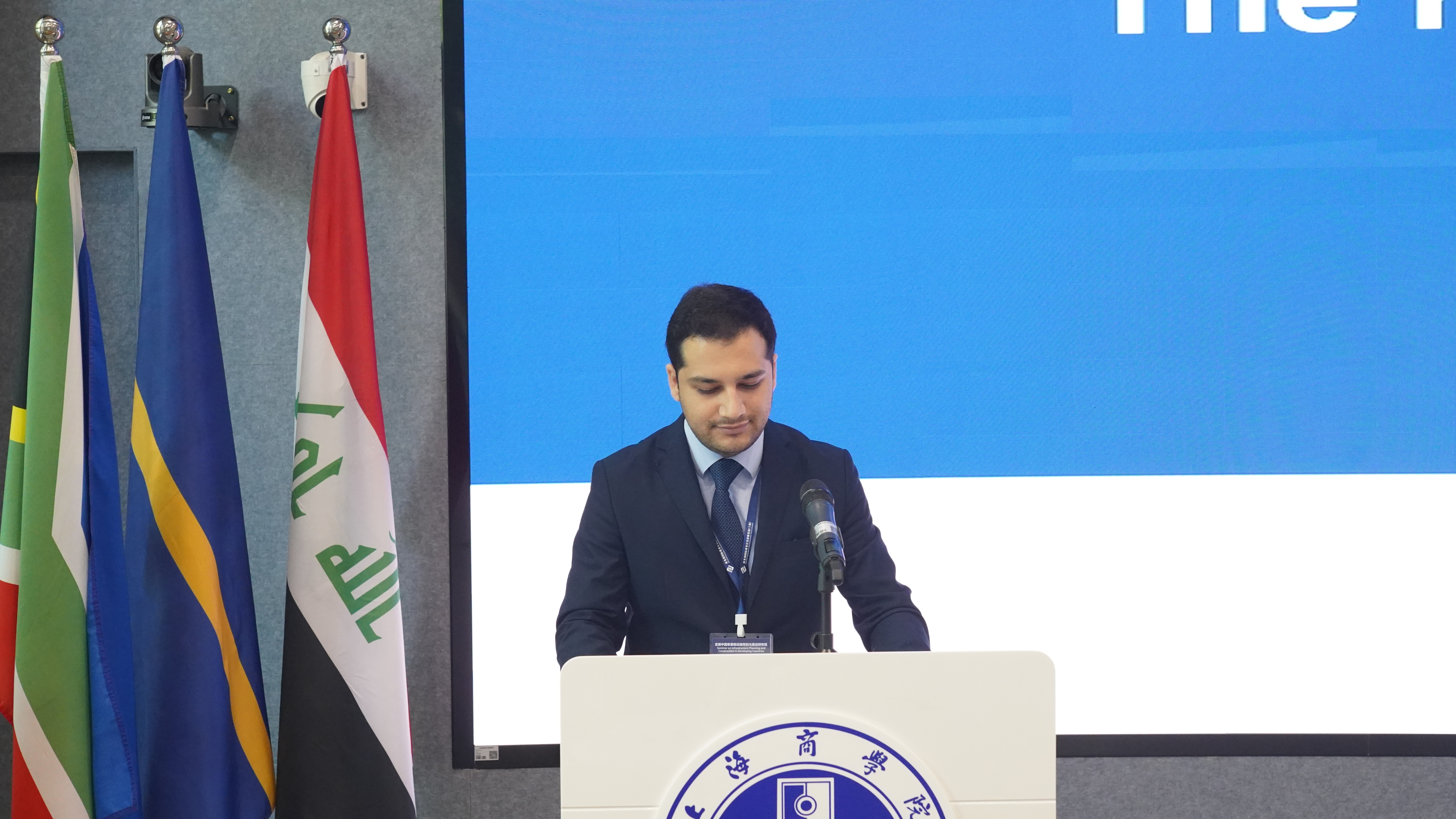On the morning of June 5th, the opening ceremony of the Seminar on Infrastructure Planning and Construction in Developing Countries was held. The seminar was sponsored by the Ministry of Commerce of the People's Republic of China (MOFCOM) and hosted by the MOFCOM Training Base for International Business Officials (Shanghai) of the Shanghai Business School (SBS). Liu Bin, Dean of the College of International Education of SBS and Director of the MOFCOM Training Base for International Business Officials (Shanghai), and Pang Lei, Associate Professor at the College of Architecture and Urban Planning (CAUP) of Tongji University, attended the ceremony and delivered speeches.

In recent years, China has achieved significant results in infrastructure cooperation with developing countries, becoming a model for South-South cooperation. Through the Belt and Road Initiative, China has participated in the construction of major projects such as railways, ports, and electricity in Asia, Africa, and Latin America. Adhering to the principle of extensive consultation, joint contribution and shared benefits, China provides financial support, technology transfer, and construction experience to help developing countries overcome infrastructure bottlenecks. This seminar aims to create a platform for in-depth exchange, assisting participants in exploring how to tailor modern infrastructure and urban systems to support future development.

Liu Bin stated that infrastructure is not only the "hard support" for economic operation but also the "foundation" for improving people's livelihoods and sustainable urban development. Currently, facing the trend of profound adjustments in global industrial chains and accelerated green and low-carbon transformation, improving the planning and management capabilities of modern, resilient, and sustainable infrastructure has become a common challenge for all countries. In this seminar, we will share China's innovative practices and solutions in transportation hub planning, green energy networks, smart city operations, and resilient infrastructure. She expressed her hope that this seminar would become a vibrant forum for intellectual exchanges and a fertile ground for enduring friendships.

Associate Professor Pang Lei pointed out that in today's interconnected world, infrastructure development is no longer just about "building more" but "building better"—more inclusive, more resilient, and more closely aligned with the actual needs of the people. Achieving this goal requires the combined support of systems, talent, and cooperation. He hoped that this seminar would serve as a starting point for promoting mutual understanding and cooperation, and as a link for communication and development among participants.

The participant representative, Mr. Farhad Ibadli, a senior expert from the Ministry of Energy of the Republic of Azerbaijan, expressed that this seminar not only provides an important platform for in-depth understanding of infrastructure planning and construction but also builds a valuable bridge for communication between experts and participants from different countries, allowing them to learn from each other and exchange ideas. He particularly looked forward to exploring new pathways for sustainable infrastructure development during this program. He hoped that through this platform, participants from various countries could work together to address challenges during the development, seek innovative solutions, and jointly build a better and more sustainable future.
This seminar lasts 14 days and there are 28 participants from eight countries: Azerbaijan, Chile, Fiji, Gambia, Iraq, Nauru, South Africa, and Uganda. The program will arrange field trips to Chengdu and Dujiangyan in Sichuan Province.
Written by: Li Shuo
Photographed by: Li Zheng
Reviewed by: Chen Wei